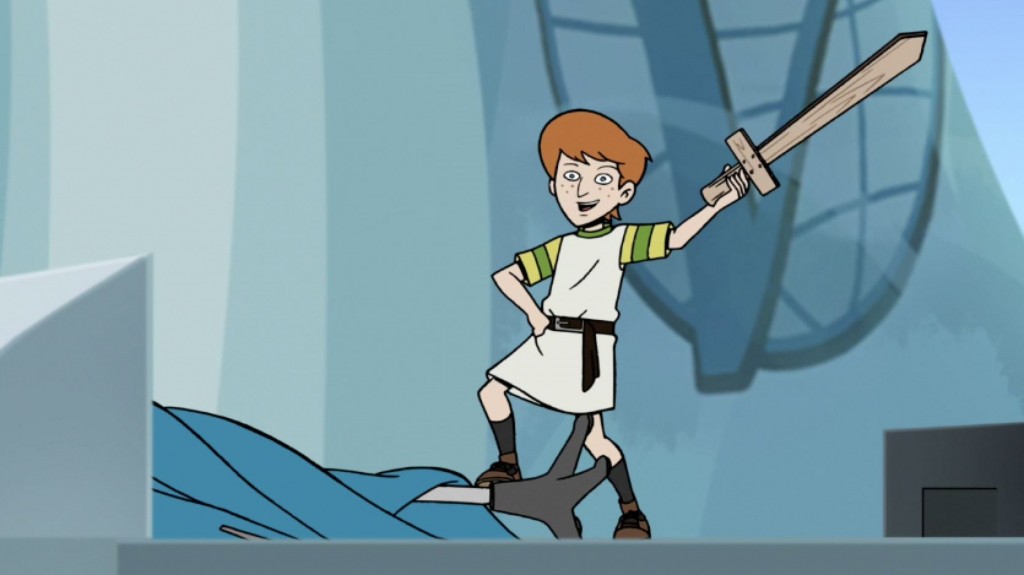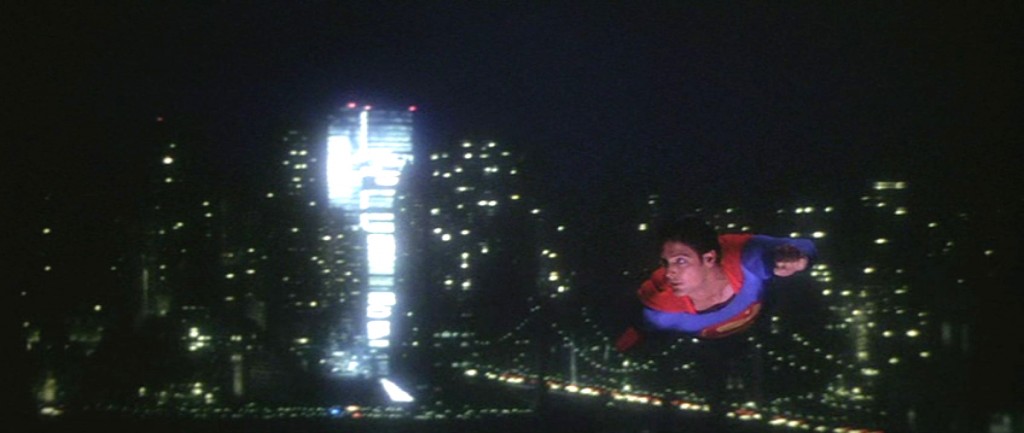The Venture Bros: “Spanakopita!”
Wikipedia informs us: “On October 20, 1968, Jackie Kennedy married Aristotle Socrates Onassis, a wealthy Greek shipping magnate, who was able to provide the privacy and security she sought for herself and her children. The wedding took place on Skorpios, Onassis’s private island in the Ionian Sea, in Greece.” We now know that Jonas Venture, Sr and the rest of the original Team Venture were at the wedding. Jonas had spent the afternoon diving for treasure and then sped off with the boys to get drunk and experience some high society. In other words, “fortune and glory.” Of course, the seeking of fortune and glory necessitates the abandonment of Jonas’s son Rusty, the protagonist of our current narrative. Rusty, playing at being Theseus, “slays the Minotaur” (HELPeR wearing steer horns), and Jonas chides him for not learning “the classics.” The story of Theseus is, of course, about as classic as tales go, indicating that Jonas hasn’t been paying attention to Rusty on a couple of different levels.
Superman: Superman: The Movie part 4
What does Superman want? It seems like an odd question to ask at this point, but the movie Superman spends its first seventy minutes setting up a conflict between impulses for its title character, and now that he’s emerged, it’s a question worth asking. Once Superman shows up to save Lois Lane, the genie is out of the bottle, so to speak, and the movie, once again, does something odd – it stops for a few minutes for Superman to buzz around town doing Superman stuff. It’s a no-brainer for him to save Lois from a plummeting helicopter (he’s in love with her after all), but then we see him 1) stop a jewel-thief in the midst of a building-climb, 2) foil a robbery getaway, 3) rescue a cat from a tree, and 4) save Air Force One when it is struck by lightning in mid-flight. Saving people (and a cat) is an easy choice, but why does Superman necessarily foil criminals? And, once he’s made the decision to foil criminals, why does he foil only these criminals? Was there really no other crime happening in Metropolis that night? Was the city otherwise a peaceful idyll for the time he spent saving the cat? For that matter, to save Lois Lane is one thing, he’s in love with her (although the narrative has shown no good reason why), but when he makes the decision to save the president over other people (or a cat), he’s making a specific choice. Superman decides who is worth catching and who is worth letting go, and he decides who is worth saving and who is not.
How does this sequence funcion narratively? I’ll tell you, as teenager watching the movie in 1978 (he said, contemplatively stroking his long white beard) the feeling was “Finally, the movie is starting.” This sequence, beginning over an hour into the narrative, is like a title sequence for the rest of the movie. No plot emerges from Superman’s randomly-selected salvations and punishments, but tonally the sequence is a miracle, literally. It presents a world-changing night when suddenly there is a god on earth, nabbing the bad and protecting the endangered. As the first-ever sequence presented in a wide-screen, big-budget superhero movie, it’s a complete game-changer. It’s what we came to see, and the notion that there would be a god out there deciding who was worth imprisoning and who was worth rescuing was a brand-new, very powerful thing in the movies. Not even a Biblical epic could give an audience a secret god, Moses and Jesus and Noah (I can’t think of any others who got their own movies) could never disguise themselves to mete out punishments and rewards. In 1978, America very much needed a way to feel good about itself and Superman suggested that somewhere there was a man, a man with heavenly origins but Midwestern upbringing, who knew what made America great and could show us the way with politeness and good humor. And let it be said that Christopher Reeve rose to the challenge magnificently and became the image of Superman to my generation. When the authors of Kingdom Come dedicated their book “to Christopher Reeve, who made us believe a man could fly,” they spoke for everyone who saw Superman in the theater.

